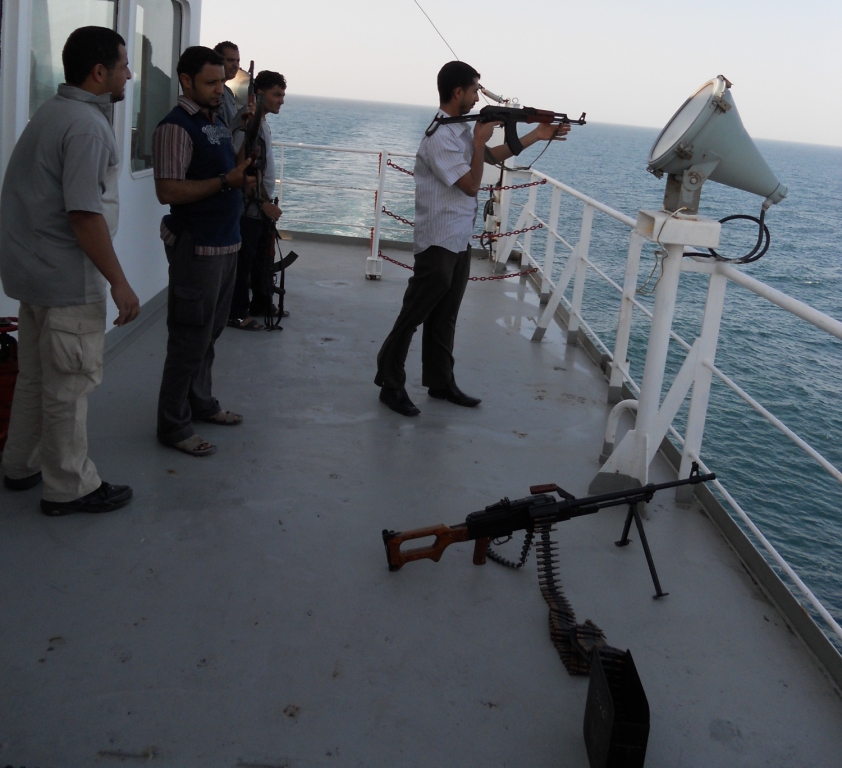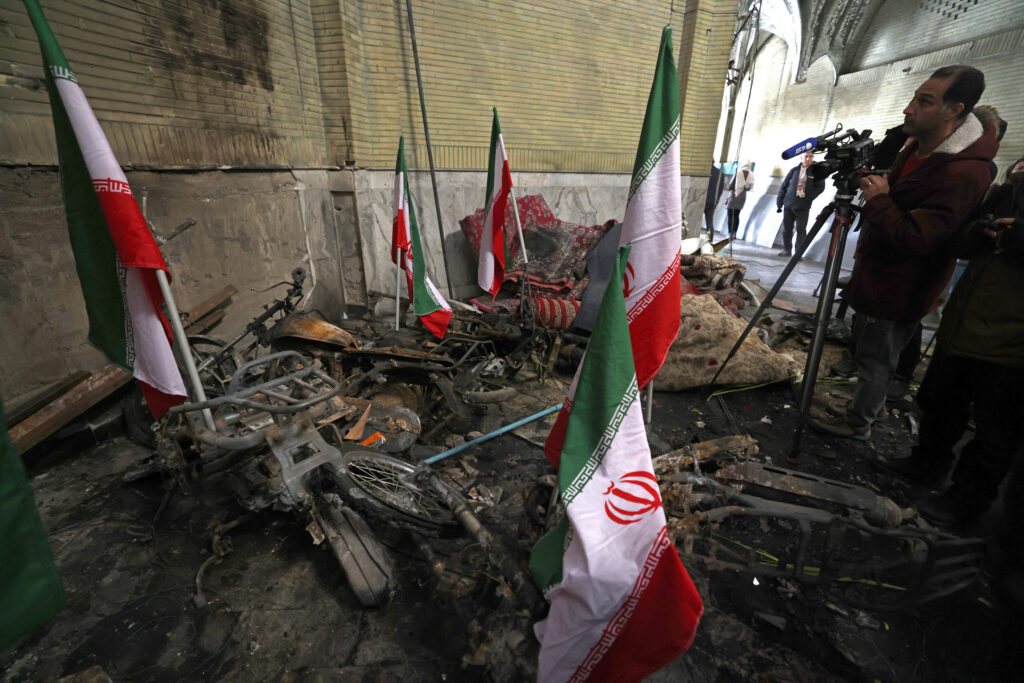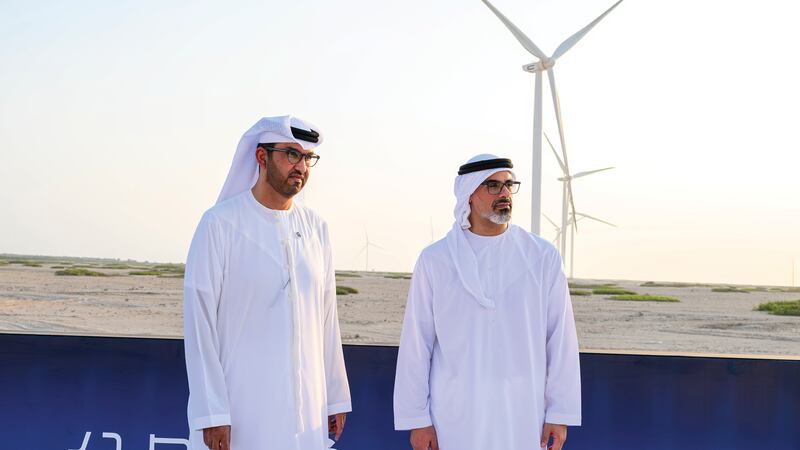Series Introduction
The Changing Character of War in the Middle East and Beyond
Since the privatisation of the American war in Iraq, the commercial market for force in the Middle East has grown exponentially, raising critical regulatory concerns. In addition to protecting people and infrastructure, for instance along China’s Belt and Road, some security contractors now even perform combat-related services such as communications support and drone operations. While professional contractors promise greater flexibility and cost-efficiency than traditional armies do, we have also seen shadowy contractors and mercenaries being deployed with plausible deniability by the likes of Russia and Turkey in places like Syria and Iraq.
This series of Insights brings together academics and industry practitioners to explore the possibilities and challenges presented by such privatisation of the state’s monopoly on the use of force.
CLICK HERE FOR THE PDF
By Jamie Williamson*
Private security companies and military contractors have become permanent actors in high-risk environments, including conflict zones, and reliance on their services is likely to continue. Amid concerns about their behaviour, a code of conduct was jointly developed for the industry in 2010 by a group of states, civil society organisations and private security providers. In this article, the executive director of the International Code of Conduct Association for private providers notes the progress made since the adoption of the code in ensuring that there is oversight of, and accountability, for the behaviour of private security providers. He also highlights the areas where more needs to be done and identifies trends that could shape the industry in future, including urbanisation, technological developments and climate change.
The Limitations of International Law
Casting an eye back to the second Gulf war in Iraq, the international community witnessed an immense growth in the footprint of private military contractors and security companies in conflict environments. As widely reported, some of these private actors committed human rights abuses and violated international humanitarian law. These incidents gave rise to a number of pressing and critical questions in terms of oversight and accountability, in an industry lacking transparency and where impunity seemingly prevailed. What could be done to address these questions, and what steps could be taken to raise standards within the private military and security sectors?
The international legal framework applicable at the time of the war did not directly address the obligations of states and the responsibilities of security companies and military contractors in armed conflicts. There were no legal gaps as such; what was lacking was specificity and understanding of the issues. The 1989 UN International Convention against the Recruitment, Use, Financing and Training of Mercenaries, the 1949 Geneva Conventions and their 1977 Additional Protocols, as well as a range of human rights treaties, national laws and regulations offered a piecemeal and imperfect approach to regulating the activities of private security companies and military contractors. There were initiatives in the multilateral arena, with the UN Working Group of Mercenaries playing a leading role in the development of a new comprehensive international treaty. Yet, adopting a new treaty, arguably, would not solve many of the critical issues, such as those witnessed in Iraq during the second Gulf war.
The first challenge in developing a new treaty lies in capturing clearly the key areas that require greater regulation. There will be a natural bias in terms of what to include in the treaty provisions, a bias partly premised on political, security and domestic interests and partly on those areas deemed a priority by the drafters of the instrument. This means there is a risk of being too broad or too narrow in defining the boundaries of a new treaty. There is also a real concern, especially when dealing with a relatively new field such as private security and military, that such a treaty may not be able to do justice to the complexities and evolving nature of the situation on the ground. As the discussions by the UN Working Group demonstrated, developing an all-encompassing and effective treaty will be an uphill and multi-year struggle: one of the first hurdles encountered by the group — correctly labelling the actors and agreeing on what constitutes “inherently governmental functions” — became insurmountable owing to competing interests and divergent views between the stakeholders. In the meantime, the questionable activities of certain private security and military actors remain unchecked.
Second, for international law to be impactful strong implementation mechanisms are necessary, and these are usually at the national level. Yet, if states are not committed to enforcing international law through national legislative and regulatory efforts, any international treaty risks becoming an empty shell.
ICoCA: The Background
Given the nature of the concerns, such as the alleged transgressions of some private contractors in Iraq during the war, waiting for the development of a new treaty was not seen as the most efficient course of action. Instead, the Swiss government, together with the International Committee of the Red Cross, convened a meeting involving 16 other governments to address the reach of international humanitarian law and aspects of human rights law, as well as existing practice regarding the oversight and responsibilities of private military contractors and private security companies during armed conflict. This initiative, launched in 2006, led to the adoption in September 2008 of the Montreux Document.
The idea behind the Montreux Document was effectively to present a re-statement of existing international law as it applies to the activities, regulation and oversight of private military contractors and private security companies, particularly during armed conflict. The Montreux Document also contains best practices to help states comply with their pre-existing international legal obligations in this regard.
Following the adoption of the Montreux Document, a framework for ensuring that transnational and other businesses respect human rights and for improving access to remedies for human rights abuses — the UN Guiding Principles on Business and Human Rights (UNGP) — was endorsed by the UN Human Rights Council in 2011. In parallel with the drafting of the framework, the International Code of Conduct for Providers of Private Security Services (the Code) was developed. This was the outcome of a multi-stakeholder process involving governments, civil society organisations, the security industry and a range of key stakeholders, including clients and regulatory experts. It was intended to serve as a code of conduct for private security companies, notably those operating in complex — not necessarily conflict — environments. The Code, adopted in 2010, is wide-ranging, particularly in terms of human rights obligations and international humanitarian law standards, and provides private security companies with a clear guide and set of parameters to ensure that their operations meet internationally recognised standards.
Subsequently, the International Code of Conduct Association (ICoCA) for private security service providers was established in 2013 with the mandate of driving and overseeing the implementation of the Code. ICoCA brings together governments, civil society organisations and security companies.
Working with Both the Supply and Demand Sides
Unlike earlier attempts at regulating the industry through international treaties and domestic legislation, ICoCA represents a new and unique approach. Instead of policing a top-down standard of practices, ICoCA takes a much more integrated and pragmatic approach to raising standards within the industry: it engages closely and substantially with all key stakeholders along the supply and value chain, in particular, governments, security providers, civil society organisations and clients of private security companies, to develop best practices and a robust mechanism to ensure respect for human rights and international humanitarian law in the provision of private security services. The multi-stakeholder structure of ICoCA allows for a greater level of dialogue and interaction with all key actors involved in the oversight and management of private security companies. This hands-on approach helps bring clarity to the complexities of the military and security contracting worlds in terms of the roles and responsibilities of each specific set of actors. ICoCA has shown itself to be an important platform to enable the practical implementation of the UNGP.
Central to ICoCA’s dynamic approach has been developing a better understanding of the market drivers within the private security industry. In large part, these drivers are rooted in commercial realities. In other words, the range and nature of services offered by private security contractors will be driven by the demands of clients. The association has therefore been working with an array of actors along the supply chain to positively influence the behaviour not only of the security industry but also those that use security providers.
As the association became functional, early indicators suggested that in many complex environments private security companies were operating in a highly competitive market space where client focus tended to be primarily on costs. This prioritisation of cost-benefits was seen to undermine efforts to ensure that security companies would take the necessary measures to fully incorporate the Code into their procedures and operations.
From ICoCA’s perspectives, clients need to demand more from their security providers in terms of standards and show greater flexibility in their budgetary considerations when selecting security providers. Greater oversight on the part of clients, as well as third party monitoring by ICoCA, coupled with stronger procurement processes that integrate Code provisions, will go a long way to incentivising security companies to improve their offerings and to demonstrate compliance with the standards set by the Code.
The above is applicable to all clients, which include humanitarian agencies, international organisations, multinational corporations, governments and non-governmental organisations.
In its approach to regulating the supply side, ICoCA tries to impress upon security providers that there is a business case for them to join the association. By improving their capacity to operate to intentionally recognised standards, not only are they minimising the risk of human rights abuses being committed, but they are also creating opportunities of being awarded contracts from international clients, who are increasingly introducing stringent requirements, such as membership of ICoCA, in their procurement requirements.
This strategy is already bringing some very positive results, with a growing number of local security providers from a variety of contexts having now become part of ICoCA. Having worked with many of these security providers in Africa and the Middle East, ICoCA has witnessed an evident will in them to learn and to integrate ICoCA’s practices to strengthen their culture, management, oversight and leadership qualities. For example, in 2019, while working closely with a small new local security company in northern Kenya, we walked hand in hand with the managers and the guards to each of their duty posts, looking at how they were putting the Code into practice, noting how they were reacting to our comments, and generating pragmatic and immediate responses to improving standards and understanding of Code requirements.
Maritime Private Security Sector
ICoCA member companies offer both land and maritime security services, with about 20 per cent, including from China and Singapore, falling in the latter group. While there is growing interest among ICoCA members to provide maritime security, it is a sector that is more difficult to monitor than land security operations. It is indeed much easier to carry out site visits to land security facilities than to their maritime counterparts. For instance, should site visits be limited to port locations, or should they be expanded to include on-board visits during ship transits? What are the risks associated with such visits?
Based on official records and public source reporting, maritime security incidents including banditry, armed robbery and kidnappings are still occurring, including in the Malacca and Singapore Straits. Security questions will also be raised in relation to the sea routes of China’s Belt and Road Initiative. Shipping companies both in China and Singapore, in particular those that have international operations, will have to keep an eye on security developments in the Gulf and critical sea lanes off east Africa. Even though the situation around Singapore’s shores is not in itself complex, maritime security trends in regions through which Singapore’s seaborne trade traverses bear watching, and since ICoCA’s mandate and membership includes maritime security services, its work is relevant to Singapore and the region.
As ICoCA builds on its experiences to date and moves into the next stage of its activities as described in its 2019–2023 strategic plan, greater attention will be devoted to addressing issues relating to private maritime security. Because of the different regional dynamics in terms of threats, security responses and regulatory requirements, there will be a need to keep developing improved local knowledge and expertise to appropriately tailor ICoCA’s approach. That being said, most of the principles contained in the Code apply to all maritime security operations, irrespective of where they occur globally. What will be critical in the future then will be to ensure that best practices from one region can positively inform and influence the operations of maritime security providers in other regions.
Future Security Trends
As a side event to its 2019 annual general assembly, ICoCA organised its first workshop to consider security trends over the next 10–30 years and their consequences for the provision of private security in a variety of environments. Four possible trends in terms of the major dynamics and the potential risks were identified.
First, as recognised in a variety of future security and strategic forecasting reports by major Western militaries, including Nato, both the footprint of, as well as reliance on, private security contractors is likely to increase for the foreseeable future. This is not simply a leftover of the second Gulf war. It is a clearly identifiable trend, one in which private security actors may be assuming more and more functions traditionally reserved for public security forces.
The second major trend is the impact of increased urbanisation on the nature of private security operations. Rapid urbanisation and the growth in the number of mega cities give rise to many questions, notably: how does one “police” these mega cities, manage security in highly urbanised environments, or manage security in ungoverned spaces? Closely tied to urbanisation is the phenomenon of climate change, which invariably will lead to a scarcity of resources and other insecurities. How will this shape the growth of the security sector in local communities?
The third issue flagged was the evolution in the use and capability of new technologies. New technologies offer alternative security models. With such developments, what safeguards need to be put in place to ensure that human rights are protected? And how are such safeguards defined in light of the rapid acceleration in the development and potential of new technologies, the boundaries of which appear unfathomable.
Lastly, the workshop explored the impact of future health crises on the security environment. Following the workshop, the world was hit by the Covid-19 pandemic. And if the predictions of experts are to be believed, this could be the first of many such pandemics. As we learn from managing security during Covid-19, ICoCA is working with its members to determine when rather than if a new private security model will be needed to successfully navigate pandemics.
Conclusion
In drawing conclusions from the first 10 years of the Code, and the work of ICoCA since 2013, it would be fair to say that there has been much progress and many achievements that can be reported. At the same time, it would be reasonable to note that we find ourselves at a crossroads, with many new issues that need to be addressed. Indeed, the private security landscape, which showed its colours in Iraq during the second Gulf war, does not offer the same tapestry today. There has been a marked evolution on many fronts, including in terms of industry demographics, menu of security services offered, range of risks, and developing security trends. These will require continued efforts on the part of many within the security industry and beyond to ensure that operating to internationally recognised standards is not an aspirational goal but an applied reality globally.
About the Author
*Mr Jamie Williamson heads the secretariat of the International Code of Conduct Association (ICoCA). The association promotes, governs and oversees the implementation of the International Code of Conduct and promotes the responsible provision of private security services. As executive director, Mr Williamson brings to the organisation a wealth of international, legal, military and security experience. He joined ICoCA in October 2017 after several years as the head of the Relations with Arms Carriers Unit at the International Committee of the Red Cross (ICRC).
Image caption: An armed guard escort on a merchant ship, 31 December 2011. Photo: Wikimedia / Hanuma Bhakta





